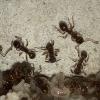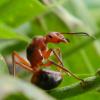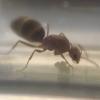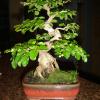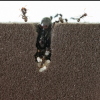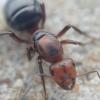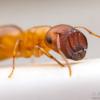🤔I’m not sure infertility is an appropriate term with respect to queens. In theory, all queens are fertile. The salient question is whether the queen has been inseminated. In bees, wasps, and ants, the sex of an egg is determined by whether it has been fertilized. An unfertilized egg produces a male. A fertilized egg produces a female. It follows from this that only queens and workers have the genetic material from both male and female reproductive forms (diploidy) while the male has only the genetic material from the male reproductive form (haploidy). Whether a female egg becomes a queen or a worker is determined by the colony’s state and how the egg is nurtured. In a mature colony replete with resources, the hormones supplied to the egg/larva/pupa by its nurturing workers will allow the full development of ovaries and that pupa will become a virgin queen. In a less sated colony, the egg/larva/pupa’s nurturing will direct it toward poorly developed ovaries thus creating a worker. In some species many of the workers are capable of laying eggs. These unfertilized eggs will, if nurtured, develop into a male. So, all queens are fertile. Their egg laying and the development of their eggs is determined by their health and the founding colony’s conditions. The sex is determined by whether the egg has been fertilized, and the caste is determined by how the egg/larva/pupa is nurtured.
Edited by ConcordAntman, August 30 2019 - 5:18 PM.


